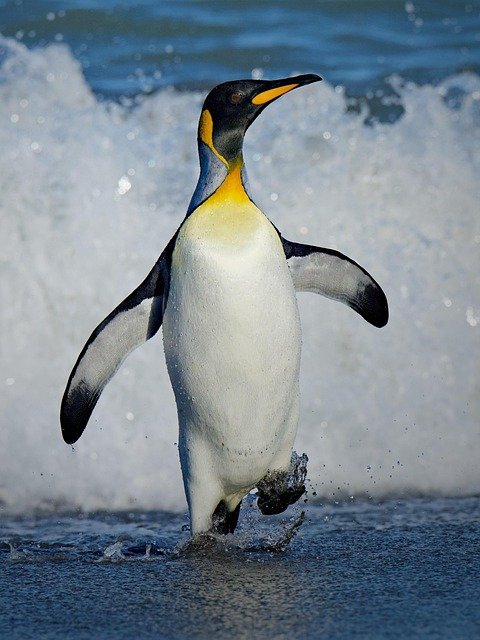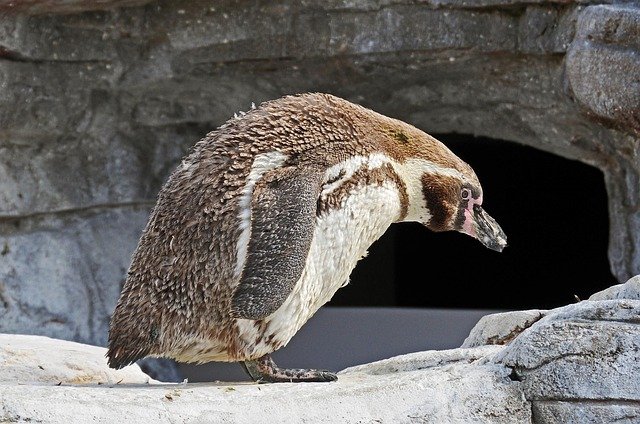**Title: "The Social Lives of Penguins: How These Flightless Birds Build Community and Cooperation"

The Social Lives of Penguins: How These Flightless Birds Build Community and Cooperation
Penguins, often regarded as the epitome of cuteness, are fascinating creatures that exhibit complex social behaviors. Despite their flightless nature, these birds have developed intricate social structures that help them thrive in some of the harshest environments on Earth. In this post, we’ll explore how penguins build community and cooperation, highlighting their social interactions, parenting strategies, and survival tactics.
The Importance of Community
Colony Structure
Penguins are highly social animals that typically live in large colonies, which can number in the thousands. These colonies serve as a protective mechanism against predators and harsh weather conditions. The sheer size of a colony provides safety in numbers, allowing penguins to work together to fend off threats.
Social Hierarchy
Within these colonies, penguins establish a social hierarchy. Dominance and submission behaviors are common, with certain individuals gaining preferential access to resources such as food and nesting sites. This hierarchy helps maintain order and reduces conflicts within the group.
Communication and Social Bonds
Vocalizations
Penguins are known for their distinctive vocalizations, which play a crucial role in social interactions. Each species has its own unique calls, allowing individuals to recognize mates, chicks, and even neighbors. These vocalizations are essential for maintaining social bonds and coordinating group behaviors.
Physical Interactions
Beyond vocal communication, penguins engage in physical interactions such as preening and touching. These behaviors strengthen social bonds and help reinforce the connections between individuals within the colony. The act of preening not only serves a hygienic purpose but also fosters a sense of community among penguins.
Parenting and Cooperative Breeding
Shared Responsibilities
Penguins exhibit remarkable parenting behaviors, often sharing responsibilities between mates. In species like the Emperor Penguin, males incubate the eggs while females forage for food. This cooperative breeding strategy ensures that both parents contribute to the survival of their offspring.
Chicks and Crèches
Once the chicks hatch, penguins often form crèches—groups of chicks that gather together while their parents are away searching for food. This cooperative behavior provides safety in numbers, as the chicks are less vulnerable to predators when they are in a group.
Survival Strategies
Foraging Cooperation
When it comes to foraging for food, penguins often work together to increase their chances of success. Some species, such as the Gentoo Penguin, have been observed foraging in groups, which helps them locate schools of fish more efficiently. This cooperative behavior enhances their ability to feed their young and sustain the colony.
Alarm Calls
Penguins also utilize alarm calls to warn their colony about potential threats. When a predator is spotted, individuals will vocalize to alert others, allowing the colony to take evasive action. This collective vigilance is crucial for the survival of the group.
Conclusion
The social lives of penguins are a testament to the power of community and cooperation in the animal kingdom. Through their intricate social structures, vocal communications, and cooperative parenting strategies, these flightless birds have adapted to thrive in challenging environments. As we continue to study and appreciate these remarkable creatures, we gain valuable insights into the importance of social bonds and collaborative behaviors in the natural world.
References
- Penguin Conservation Society - Insights on penguin social behaviors and conservation efforts.
- National Geographic - Articles and documentaries on penguin species and their habitats.
- Journal of Avian Biology - Research studies on penguin social structures and communication.
Feel free to share your thoughts or experiences with penguins in the comments below! 🐧
